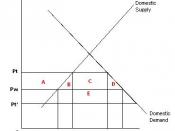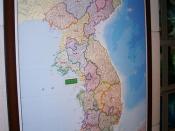Sales distribution channels
Local representation is essential for the success of foreign firms in the Korean market. This is especially true when considering the fact that in Korea, business relationships are built upon personal ties and social introductions, and that much of the major third-country competition is only a few flight-hours away. In addition, for sectors that involve any type of government procurement, an entity must be registered with the Korean government in order to bid on the procurement projects. Hence, many American firms enter into a consortium with a Korean company or enter into a representative agreement, especially for the purposes of market entry. Finally, the language barrier and established social/ business circles make it extremely difficult to enter the Korean market without a qualified Korean representative.
Distribution methods and the number and functions of intermediaries vary widely by product area and local conditions. The market for most consumer products is concentrated in major cities.
Retail distribution is accomplished through a highly complex network, the majority of which are small family-run stores, stalls in markets, and street vendors, though this traditional distribution method is changing rapidly toward large-sized discount stores. There are many large retail stores in the major cities, especially Seoul, Daegu, Busan, and their outer-lying suburbs. This distribution channel is one of the best ways to market foreign products to Korean consumers. Recently, retailing concepts such as Full-Line Discount Stores (FDS) including Price Costco (USA), Wal-Mart (USA), Carrefour (France), and E-mart (Korea) have gained tremendous popularity in Korea. Rapid expansion of these discount chain stores is planned nationwide, with suburban satellite cities attracting the greatest number of stores.
In November 1995, regulations from the Korean Ministry of Finance and Economy (MOFE) went into effect, which allowed the legal entry of parallel imports. Prior to this legislation, distribution...


